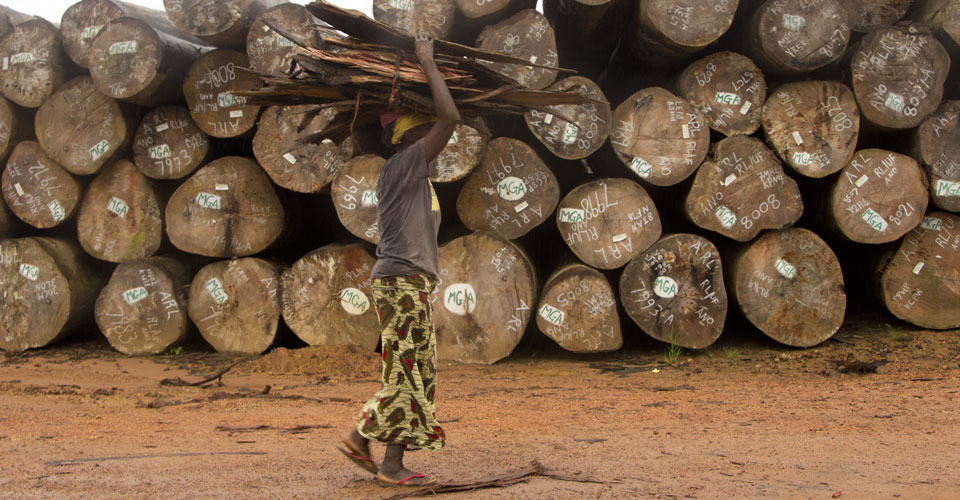Liberia:
Putting communities at the heart of Liberia post-conflict forest governance

For decades Liberia’s civil war was fuelled by profits from the sale of timber and minerals. When the war ended in 2003, communities living in the nation’s forests found themselves powerless in the face of the logging sector, which had long financed both the war efforts and the lavish lifestyles of a small elite. Customary rights to land relied on by most of the population for its basic needs were not adequately recognised in new laws drafted by officials far away in Monrovia.
Rebuilding trust in government institutions takes time and effort, but there are signs of real progress in Liberia. This must be built upon and applied to other sectors in a country with abundant resources but a long history of corruption. If they can get it right, this could offer a model of sustainable development for resource rich developing economies.
Communities were not really aware – they never had any idea of their rights regarding forest laws. Now, whether educated or not, community members are able to express their views to committee members about what they really need from their forests."
– Doris Wologbo, member of River Cess County CFDC
A major innovation has been the introduction of Community Forestry Development Committees (CFDCs) – ten member community bodies that represent forest people’s interests and make sure they get information they understand.
Many such initiatives fail because they make no sense to the people they are aimed at. This is where the work of NGO the Sustainable Development Institute (SDI) is crucial in Liberia. In 11 of 22 CFDCs, SDI has provided support to develop community rules, open bank accounts and help them understand and push for the rights bestowed on them in the forest sector’s new legal framework.
Committees have also helped establish a legal framework for the management of payments from logging companies, to reduce the potential for abuse. These funds, collected by the government, should in principle be placed in a trust supervised by a board, which evaluates project proposals and oversees their implementation. But to date, the money has not been forthcoming. Further support is needed to ensure that money is deposited in the trust fund, or the CFDCs will not realise their potential for the principles of good governance to filter down through the community network.
Another ambition for CFDCs is that they evolve to give the communities a more direct forest management role. A first step in this was the development of a Community Rights Law with Respect to Forest Lands, which SDI and other civil society leaders took charge of drafting alongside local communities.
Key provisions would not have happened without civil society intervention and expertise, and these changes have helped rebalance the benefit-sharing arrangements away from a remote national government and toward local leaders who can be more directly accountable to people. In practice, there remains much to do. Four years after the community rights law was passed, no community forests fully exist yet, while in 2012 community-owned land was co-opted into Private Use Permits, from which neither communities nor the government get any revenue.
Liberia’s CFDCs are ground-breaking innovations to involve ordinary people in decision-making about forests in the region, and SDI has worked to develop strong ones that represent the interests of their communities. With the right support, they can become valuable democratic institutions in rural Liberia, and role models for other sectors in a country where sharing with communities the benefits from resource deals has been an emerging trend since the war. The challenge now is to return forest management responsibilities to the communities as well.
President Johnson Sirleaf’s Executive Order in December 2012, which should have effectively suspended the entire logging sector, provides a golden opportunity to reset forest management on a socially, environmentally, and economically sustainable path. But it will need the right support to make that happen.
